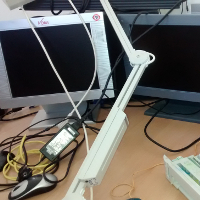 Electrical and electronic equipment (EEE) is a fast developing sector with continuous changes in equipment features and capabilities cause tremendous increase of the EEE production and sales, and decrease of the equipment’s use lifetime. Subsequently, the ever-increasing quantity of waste electrical and electronic equipment (WEEE) has become a serious social problem and threat to the environment. The EU reacts upon these developments, e.g. Directive 2002/96/EC (‘WEEE1 Directive’) has been repealed by Directive 2012/19/EU (‘WEEE2 Directive’), including new requirements and targets for the management of WEEE. In this frame, the so-called “WEEE Compliance Promotion Exercise” has been commissioned by the European Commission (EC).
Electrical and electronic equipment (EEE) is a fast developing sector with continuous changes in equipment features and capabilities cause tremendous increase of the EEE production and sales, and decrease of the equipment’s use lifetime. Subsequently, the ever-increasing quantity of waste electrical and electronic equipment (WEEE) has become a serious social problem and threat to the environment. The EU reacts upon these developments, e.g. Directive 2002/96/EC (‘WEEE1 Directive’) has been repealed by Directive 2012/19/EU (‘WEEE2 Directive’), including new requirements and targets for the management of WEEE. In this frame, the so-called “WEEE Compliance Promotion Exercise” has been commissioned by the European Commission (EC).
The aim of this study, which was carried out by BiPRO – Part of Ramboll and Deloitte, was to assess the WEEE management policy in the Member States in terms of compliance, technical content and ability to reach the targets of the Directive and, based on this, to provide support and guidance to the Member States with a focus on the key WEEE2 requirements, including the WEEE collection and recovery targets.
The overall tasks for the study have been to
- Develop a set of criteria in order to screen the national WEEE management practice of all EU-28 MS;
- Screen the waste management practice against the criteria in order to select eight Member States to be targeted for expert workshops in the countries;
- Elaborate a factsheet including information on WEEE management for each EU-28 Member State;
- Organise eight workshop for MS officials and stakeholders;
- Prepare a final workshop in Brussels.
The highlights of the study are:
- A summary of common challenges as regards WEEE management in the Member States;
- An in-depth analysis of challenges and good practices for eight selected Member States (BG, EE, FR, IE, IT, MT, LT, RO);
- More than 60 good practice examples on WEEE management collected from the Member States;
- A set of recommendations for the Member States’ competent authorities, the European Commission and other actors.
The study comprises the following elements which can be downloaded from website of the EC – DG Environment:
- An Executive Summary in English and French;
- A final report;
- 28 country factsheets on the practical implementation of the WEEE Directive in the individual Member States, and;
- Eight country policy fiches containing an in-depth analysis of challenges and good practices in the selected Member States.
More information regarding events and publications on WEEE are available on the European Commission’s website.